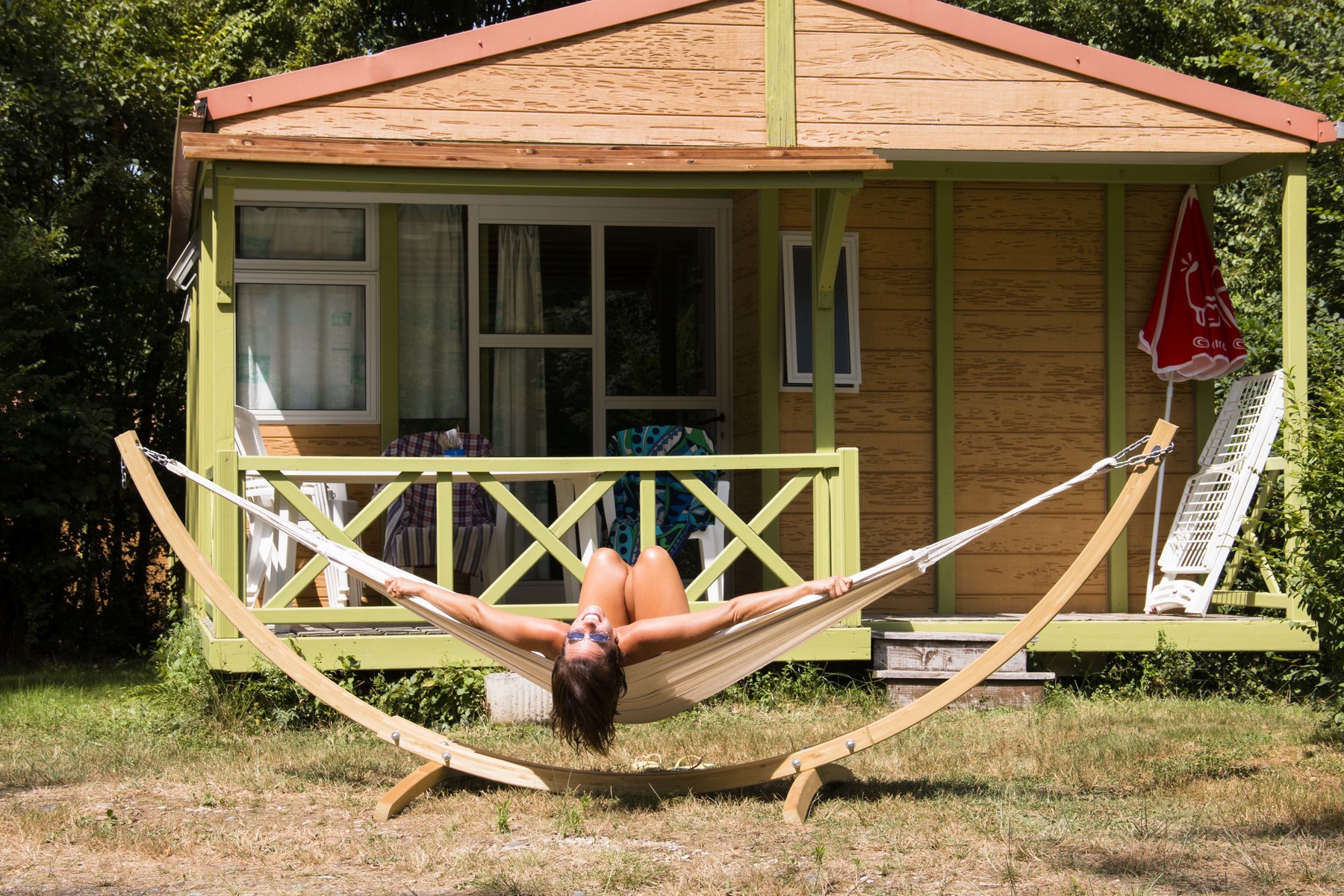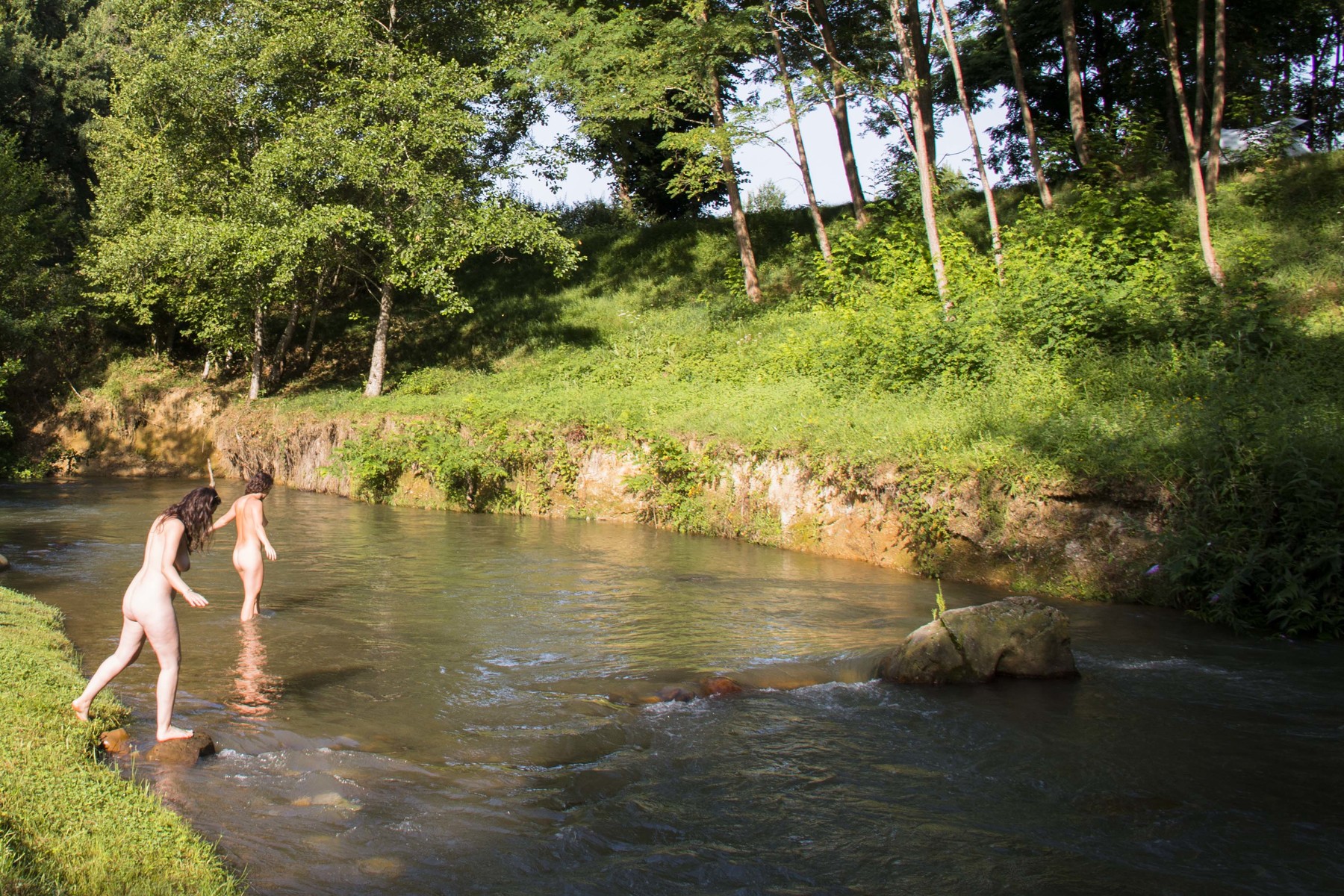Naturism
Is naturism better for your health?
There is some disagreement about where and when naturism originated. Although the earliest sources are said to come from the Greek Empire, where social nudity was nothing to be frowned upon and where the birthday suit was the common sports outfit (the word “gymnasium” is derived from the Greek word “gymnós”, which means “naked”), there are no writings that actually talk about “naturism” until the early 20th century.
The industrial revolution had turned people’s lives upside down and not always for the better. Some observers concluded that those large new factories, the oppressive working conditions, and the quickly expanding cities were a major source of poor health. It wasn’t hard to imagine that fresh air, clean water, and sunshine might be the keys to a longer and better life.
Long story short, reform groups popped up in Germany, France, and the UK. Small organizations that turned back to a more natural form of living. They breathed the air of the forests, drank the unpolluted water, and to get the most energy from the sun, they figured that they could best expose as much skin to it as physically possible. Even today, you can still find many naturist clubs that have the word “sun” or “sun club” in their names.
Naturism and physical health
So far the history lesson. Although naturism originated from a health-focused movement, its tactics do raise some questions today. Skin cancer was not yet known a century ago and we can’t imagine that many doctors today will still prescribe total exposure to the sun. On the other hand, the ultraviolet rays from the sun are among the few ways to get Vitamin D in your body (the other ways are by eating cod liver oil, swordfish, salmon, canned tuna, beef liver, egg yolks, or sardines, not exactly ingredients we use on a daily basis). Vitamin D is not just good for processing cholesterol, low Vitamin D levels are immediately linked to serious health issues like osteoporosis, cancer, depression, and muscle weakness.
As always, the answer is in finding the balance. Exposing your skin too much to sunlight is not a good idea, nor is never exposing it to sunlight. This is where naturism does play an important role. Because naturists spend a lot of time outside without clothes, they actually need much less contact with direct sunlight than those who are dressed all day to achieve equal amounts of Vitamin D.
Even though our air purification techniques have much increased over the years, we still can’t consider the air in our cities as perfectly clean. Nevertheless, studies have proven that the air quality in rural areas is rarely more than 20% better than in city centers. Not such a big difference, you may think. But if you’re living in a city, only a short visit to a naturist resort (which is often surrounded by an abundance of nature) does give you the chance to inhale some well-needed fresh air. But the air quality is not the most important effect that nature has on our well-being.
Naturism and mental health
Research has shown that people who are more connected to nature are more likely to live a happier life. While our stress and anxiety levels tend to go up when we’re confronted with artificial things, they go down when we’re in nature. Even more, natural environments improve our working memory, cognitive flexibility, and attention control. In other words, nature calms us down AND makes us more focused.
Think about it, where do you go after a stressful day at work? When you have a problem that you just can’t seem to solve? When you just want to get away from it all? A “walk in the park” is a very common answer. Many just use this as a temporary solution to an immediate issue but don’t realize that regularly spending time in nature will have long-term benefits.
We’ve mentioned earlier that naturist places like campsites or beaches are most often found in the midst of nature. But naturism adds an additional level to that. By being totally naked in nature, we take away the very last artificial boundary between our bodies and our surroundings. There just isn’t a better way to connect with nature than without any clothes.
The social aspect of naturism
This is actually a part of the mental health benefits of naturism, but we believe that it deserves its own paragraph because it’s not only so very important but also so very typical for naturism. Unfortunately, there hasn’t been much research done on the effects of social nudity on our mental health, but back in 2017, a group of researchers from the University of London came to a very interesting conclusion during their “Happiness Studies”. The research suggested that taking part in naturist activities makes people much more satisfied with their bodies, and even their lives.
It’s generally known that body image dissatisfaction is a global problem that only seems to be getting worse. The ever-changing beauty standards have created an endless race towards “the perfect body”. A race that you can only lose and that results in numerous mental and physical problems. And there’s only one way to get out of it: By appreciating your body for what it is.
This may seem easier said than done, but here too, naturism provides the answer. While being naked surrounded by strangers might seem to make you more self-conscious about your body, in fact the opposite is true. You’ll quickly notice that every body has its strengths and flaws. That there are no standards for beauty. That “the perfect body” is a total myth.
By embracing your nudity and exposing your body to others, and being respected for who you are, your body image and your self-esteem will increase enormously. And by being around other naked people, you get real-life role models instead of the photoshopped pictures that you see in the magazines and on the internet.
To finally answer the question in the title of this blog post: Yes, we believe that naturism is better for your health. And not just that, it will also make you happier. Isn’t that what we all want?


